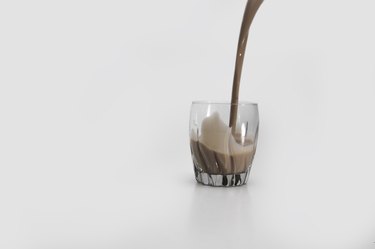
Boost Energy Drinks are provided through Nestle-Nutrition and are typically used for medically specific diets such as cancer, diabetes, digestive disorders, wound management, stroke and post-bariatric surgery. Patients with specific diets should always consult with their medical care team on how to incorporate energy drinks into their overall diet plan. Consult the Boost website for extensive information on the ingredients and nutrients in their energy drinks.
Boost Regular
Video of the Day
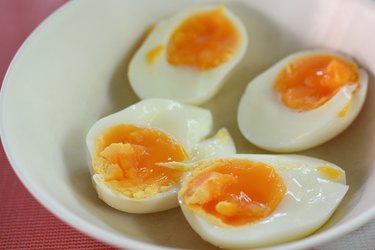
An 8 oz bottle of regular Boost contains 240 calories, 4 g of fat, 5 mg of cholesterol and 10 g of protein. There are 41 g of total carbohydrate and 0 g of fiber. Regular Boost is low in sodium; 130 mg but moderately high in potassium; 400 mg. Based on a 2,000 calorie diet, each 8 oz bottle contains 30 percent calcium, 25 percent iron and 30 percent phosphorus.
Video of the Day
Boost Plus and High Protein
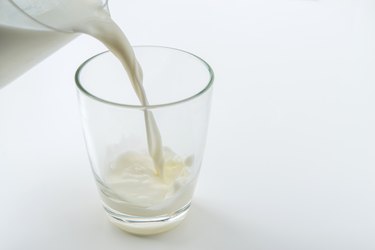
Boost Plus Energy Drink has added calories and fat for diets that require weight gain. There are 360 calories and 14 g of fat per 8 oz bottle. Boost High Protein comes in pre-mixed, 8 oz bottles and powder form than can be mixed with two percent milk. The nutritional content of both are not the same and the difference is due to the addition of milk to the powdered formula. The bottled version contains 240 calories, 6 g of fat, 10 mg of cholesterol, 15 g of protein, 170 mg of sodium and 380 mg of potassium. The powdered version, after mixing with the recommended amount of two percent milk, contains 270 calories, 5.2 g of fat, 20 mg of cholesterol, 12.8 g of protein, 185 mg of sodium and 736 mg of potassium.
Boost Glucose Control
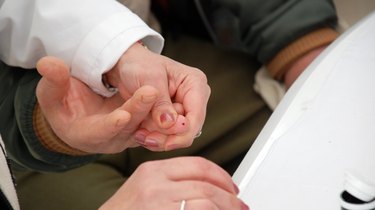
Boost Glucose Control Energy Drink is designed for people with diabetes and can be incorporated into their meal plans with guidance from the patient's medical care team. Each 8 oz bottle contains 190 calories, 7 g of fat, 10 mg of cholesterol and 16 g of protein. Total carbohydrate equals 16 g with 3 g coming from fiber and only 4 g coming from sugars. There are 180 mg of sodium and 65 mg of potassium. Based on a 2,000 calorie diet, each 8 oz bottle also has 35 percent calcium, 25 percent iron and 30 percent phosphorus. Vitamin content that exceeds 100 percent of a 2,000 calorie diet are vitamin C at 170 percent and vitamin E at 200 percent. Renal patients should be careful of high vitamin C content and look for renal specific supplements.
Boost Calorie Smart
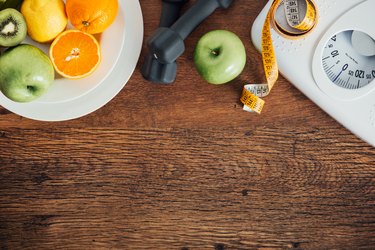
The newest product from Boost is Boost Calorie Smart designed for diets requiring low calories and high protein. Each 8 oz bottle contains 190 calories and 16 g of protein. There are 7 g of fat and 10 mg of cholesterol. Total carbohydrate equals 16 g with 3 g coming from fiber and 4 g coming from sugars. There is also 350 mg of calcium or 35 percent based on a 2,000 calorie diet.